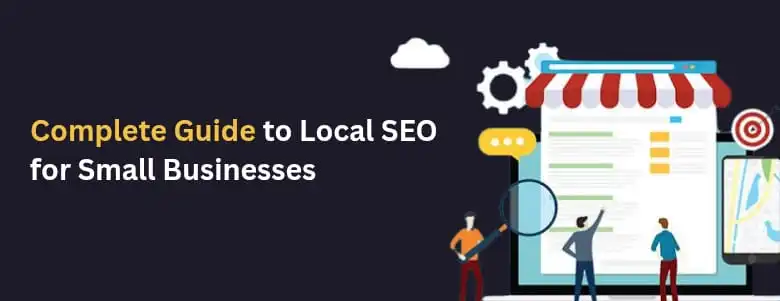Free AI Agent Builder (No Code): How to Create AI Agents Without Programming In 2026
AI automation has moved beyond developers and large enterprises. In 2026, a free AI agent builder with no code allows startups, SMBs, enterprises, marketers, and students to create intelligent AI agents without writing a single line of code. Across the USA, Europe (GDPR regions), and APAC, businesses are using no-code AI agents to automate customer support, lead qualification, operations, and internal workflows — faster and more cost-effectively than traditional software development. GEO-specific considerations (USA, EU, APAC) Table of Contents What Is a Free AI Agent Builder (No Code)? Why Use a No-Code AI Agent Builder? What Can You Build Using a Free AI Agent Builder? How to Create an AI Agent Free (Step-by-Step) Best Free No-Code AI Agent Builders (2026) Free No-Code AI Agent Builder vs Custom AI Agents GEO Considerations: USA, Europe, APAC Limitations of Free AI Agent Builders When Should You Upgrade From Free Tools? How WebGi Solutions Helps Businesses Build AI Agents FAQs: Free AI Agent Builder (No Code) Conclusion What Is a Free AI Agent Builder (No Code)? A free AI agent builder (no code) is a platform that enables users to design, configure, and deploy AI agents using visual interfaces, pre-built components, and natural language prompts — instead of programming. These platforms typically include: Drag-and-drop workflow builders AI logic blocks (prompts, memory, tools) Integrations with business systems Cloud or self-hosted deployment options With a free no-code AI agent builder, you can: Build AI chat agents Automate repetitive business processes Connect AI with CRM, email, Slack, databases, and APIs Trigger actions based on user behavior or system events No technical background is required. Why Use a No-Code AI Agent Builder? A no-code AI agent builder removes the biggest barrier to AI adoption: engineering dependency. Key Benefits No coding or development skills required Free or low-cost entry point Rapid setup and deployment Faster testing and iteration Ideal for MVPs, pilots, and internal automation This makes an AI agent builder without programming the fastest path to real AI automation. What Can You Build Using a Free AI Agent Builder? Answer customer support queries 24/7 Qualify inbound leads automatically Route tickets and update CRMs Book meetings and appointments Generate summaries, reports, and insights Trigger emails, Slack alerts, or database updates In real business environments, these agents function as always-on digital employees. How to Create an AI Agent Free (Step-by-Step) Step 1: Choose a Free No-Code AI Agent Builder Select a platform offering a free plan or open-source version. Visual workflow builder AI model support ( OpenAI , Claude, open-source LLMs) Active documentation or community Easy deployment options Popular choices: n8n, Flowise, Botpress. Step 2: Define the Agent’s Purpose The task the agent performs The users it serves The expected outcome Clear scope reduces errors and improves AI reliability. Step 3: Design the Workflow (No Code) Set triggers (chat input, webhook, form submission) Add AI logic (system prompt + rules) Define actions (reply, store data, call API) This is the core method to build AI agents without coding. Step 4: Connect AI Models OpenAI (GPT-4, GPT-4o) Claude Open-source LLMs (LLaMA, Mistral) You simply enter an API key — no programming required. Step 5: Test, Validate, and Improve Simulate real user inputs Refine prompts Reduce hallucinations Improve response accuracy This step separates demos from business-ready AI. Step 6: Deploy the AI Agent Website chatbot Internal workflow automation Slack / Teams assistant Backend AI service At this stage, you’ve successfully learned how to create AI agents without programming. Best Free No-Code AI Agent Builders (2026) 1. n8n (Free & Open-Source) Visual workflow automation Self-hosted & open-source AI agent orchestration 300+ integrations Best for: Workflow-driven AI agents Limitation: Initial setup requires light technical familiarity 2. Flowise AI Drag-and-drop interface Free self-hosted version Chat agents with memory and tools Best for: AI chat agents and rapid experimentation 3. Botpress (Free Plan) Visual conversation designer NLP + LLM integration Easy deployment Best for: Customer support and helpdesk automation 4. AutoGen (Open-Source) Best for: Research, advanced experimentation Note: Less beginner-friendly than no-code tools Free No-Code AI Agent Builder vs Custom AI Agents Feature Free No-Code Tools Custom AI Agents Cost Free / Low Higher upfront Custom Logic Limited Fully tailored Security Basic Enterprise-grade Scalability Restricted High Best Use MVPs & pilots Production systems GEO Considerations: USA, Europe, APAC USA High demand for CRM, sales, and support automation Security expectations: SOC 2, HIPAA (healthcare) Europe (GDPR Regions) Data residency and privacy controls are critical Preference for self-hosted or compliant AI systems APAC (Australia, New Zealand, SEA) Strong adoption among SMBs Focus on cost-effective automation and operations efficiency Free tools work well globally — but compliance and scale often require custom solutions. Limitations of Free AI Agent Builders Usage and rate limits Performance caps Limited security controls Restricted integrations Branding limitations These become critical once AI is tied to revenue or sensitive data. When Should You Upgrade From Free Tools? High-volume automation Advanced decision logic Secure data handling (GDPR, SOC2, HIPAA) Custom integrations Multi-agent orchestration How WebGi Solutions Helps Businesses Build AI Agents WebGi Solutions designs and deploys production-ready AI agents for businesses in the USA, Switzerland, and New Zealand. Custom AI agent architecture No-code + low-code hybrid solutions Secure, scalable deployments Compliance-ready automation ROI-focused AI workflows
Free AI Agent Builder (No Code): How to Create AI Agents Without Programming In 2026 Read More »









